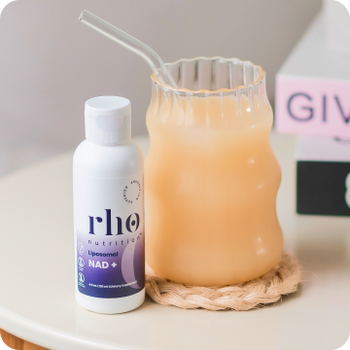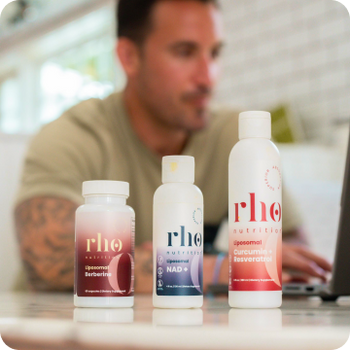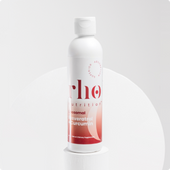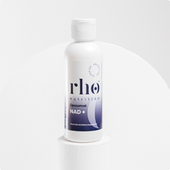Imagine a night of restful, cozy sleep.
You’re cozied up in your softest pajamas under your favorite blanket. No interruptions, no noise, no alarm clock – just deep, restorative sleep.
There’s no doubt that the perfect night of sleep just feels good. And sleep doesn’t just feel good – it is a critical factor in maintaining good health. When you’re well rested, your body can function at its peak physically and mentally. Unfortunately, many people struggle with sleeping enough or making sleep a priority – and over time this can be detrimental to your health.
How much sleep do I need?
Unfortunately, many of us skimp out on sleep when times get tough. If we have a work deadline, are traveling, or are under any kind of stress, it's usually sleep that we let go of first. This is a problem because sleep is critical to restoring our vital systems. Sleep is involved in every aspect of health from immune support to mental and emotional health.
So how much sleep do you really need? Here is the recommended amount of sleep by age according to The National Sleep Foundation:1
|
Young Adult |
18-25 years old |
7-9 hours |
|
Adult |
26-64 years old |
7-9 hours |
|
Older Adult |
65 or more years old |
7-8 hours, |
Unfortunately, more than 1 in 3 adults doesn’t get the recommended 7 or more hours of sleep they need per night – and good sleep hygiene is important. It’s normal to experience some sort of occasional sleep disruption. However, chronic sleep disruptions can impact your well-being.
Lifestyle tips that improve healthy sleep
The first step to getting better sleep is to improve your lifestyle habits. Creating a relaxing and consistent bedtime routine can help you get ready for bed. Read a book, listen to relaxing music, meditate – whatever helps you unwind and turn your mind off from the day. Avoid intense exercise before bed, as that can increase energy levels in your body.
It's also important to go to bed at the same time each night and wake up at the same time each morning even on the weekend. Your body will appreciate the consistency and settle into a natural sleep-wake cycle. If you have trouble sleeping at night right now, try to limit naps to avoid sleep disruptions at night and to create a more consistent sleep routine.
If you're a coffee drinker, it's important to avoid caffeinated beverages after noon. In addition, you’ll want to avoid large meals just before bed. Give your body time to digest your meal. If you must have a snack before bed, keep it light. Minimally processed whole foods are your best choice at this time. This includes berries, nuts, and eggs.
The environment of your room also plays a big role in how you sleep. It's essential to keep the room as dark as possible. If you need to, invest in blackout curtains that block out light from the outdoor environment. Make sure to avoid placing glowing screens near your bed as well. Put your phone in another room so you aren't tempted to grab it and be exposed to blue screens right before bed.
It also helps to sleep in a cool room. Before bedtime, your body temperature drops. This is your body's way of letting you know it's time for bed, so make sure you aren’t falling asleep in a room that’s too hot.
There are also certain nutrients you can add to your diet and lifestyle that support quality rest.
GABA
The scratchy touch of a cat tongue. A burn on your finger. Feeling sweat bead up on your palms. These are only a few of the signals your body works hard to send every day. Gamma-Aminobutyric Acid – or GABA – is a neurotransmitter, a chemical messenger that exchanges information between cells. Your body uses neurotransmitters like GABA to respond to internal and external messages.
GABA is found in foods such as Brussels sprouts, sweet potatoes, broccoli, cabbage, spinach, and cauliflower. According to the Cleveland Clinic, one of the most important actions of GABA is helping to slow down brain action when you need it.2 This helps decrease the stimulation of nerves – and in turn, calms racing thoughts.
Melatonin
Your body is designed to follow a natural sleep-wake cycle that helps you wake up when it’s light and fall asleep when it gets dark. Melatonin is a hormone that falls in the morning and decreases at night to support healthy, restful sleep.*
Melatonin is produced in the pineal gland, which is known as the “third eye” because of its connection to circadian rhythm and its location in the brain. This gland is shaped like a pinecone and is only about one centimeter in length.
The National Center for Complementary and Integrative Health (NCCIH) notes that melatonin may be useful for functions beyond sleep but more studies are needed.3 They also note that other studies suggest that melatonin is useful for supporting sound sleep.
Melatonin can help with occasional sleeplessness that occurs for shift workers or sleeplessness related to daylight savings time and jet lag.* Another issue impacting sleep health in our modern world is blue light from electronics, which may interrupt melatonin levels. After taking melatonin, put the blue screens away and complete relaxation techniques such as breathwork and meditation before sleeping.
Your body makes melatonin on its own, but it is also found in supplements and some foods. Food sources include eggs, fish, and tart cherry juice.
Glutathione
Glutathione is a substance made in the liver that is found in almost every cell in your body. It is made out of three amino acids: glycine, cysteine, and glutamic acid.
Glutathione works hard while you’re sleeping, as it is involved in one of the most important jobs your body completes: it helps neutralize free radicals, cleanses the body of damaging cells, and is a critical part of detoxification. It also helps support the immune system.4
Food sources of glutathione include avocados, spinach, okra, and asparagus.
Get sound sleep with a liposomal home run
Combining all three of these nutrients in one convenient supplement formula is an easy way to support sleep health.* For optimal absorption and effectiveness, supplementing with a liposomal GABA, melatonin, and glutathione formula can help. Check out our favorite Liposomal Sleep Formula here.
Liposomal supplements are double-layered bubbles specifically designed to ensure each nutrient gets where it needs to go, protecting each nutrient from a harsh digestive environment. The result of using a liposomal supplement formula is more bioavailability, so you can get the quality rest you deserve.* Plus, a liposomal spray is a better choice if you have trouble swallowing pills.
Adequate sleep and good sleep hygiene are critical pillars of health and wellness. Make restful sleep a priority with lifestyle habits, supportive supplements, and the guidance of a healthcare professional if you continually struggle with getting restful sleep.
References:
https://www.sleepfoundation.org/how-sleep-works/how-much-sleep-do-we-really-need
https://my.clevelandclinic.org/health/articles/22857-gamma-aminobutyric-acid-gaba
https://www.nccih.nih.gov/health/melatonin-what-you-need-to-know
https://www.ncbi.nlm.nih.gov/pmc/articles/PMC6770193/
*These statements have not been evaluated by the Food and Drug Administration.
This product is not intended to diagnose, treat, cure, or prevent any disease.








Leave a comment